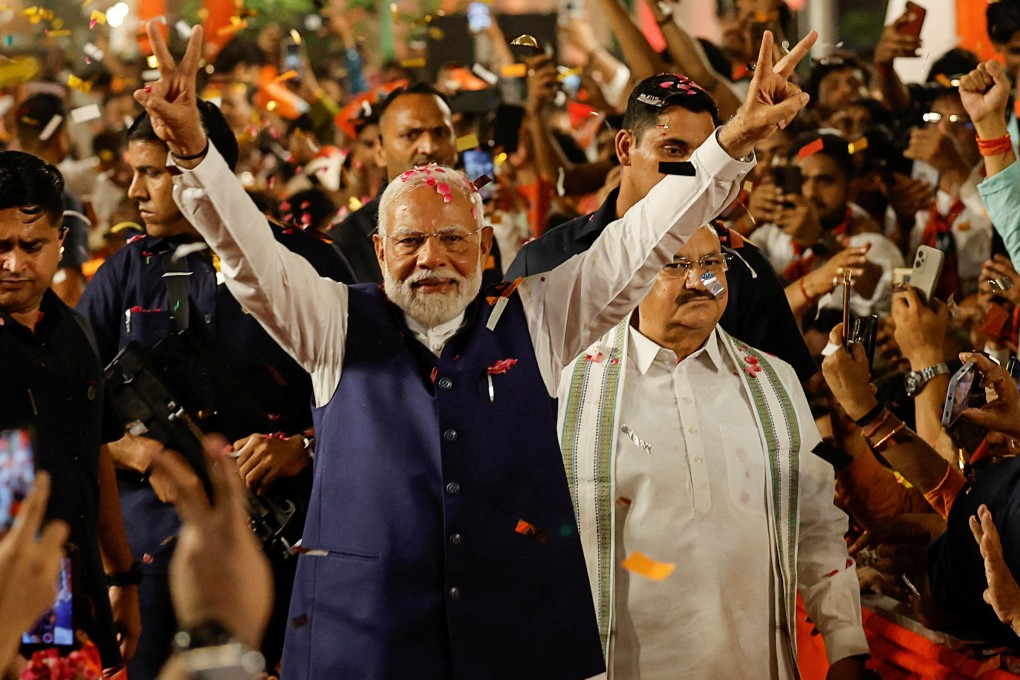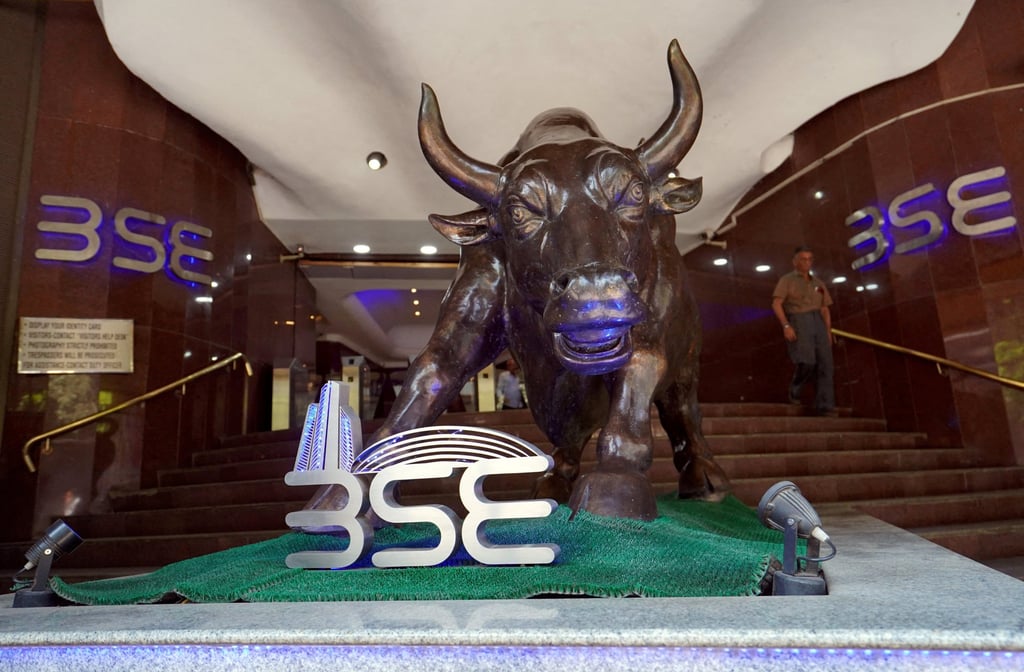India’s stocks soar as investors bet big on Modi 3.0. Will the optimism last?
- Investors are bullish Prime Minister Narendra Modi’s government will use its third term in power to ease taxes and further boost sentiment

Market players have largely shrugged off worries about the government’s stability. On Wednesday, the Sensex rose to a historic 80,000 before slipping back below that level on Friday amid profit-taking and a dip in loan drawdowns by India’s top private lender, HDFC Bank. Even so, the index has still gained 11 per cent over the past six months.

Investors are broadly positive about India’s macroeconomic situation, reforms, and improved ease of doing business, according to Sanjeev Prasad, managing director and co-head of Kotak Institutional Equities.
They are also optimistic about the medium-term earnings growth prospects for Indian companies, as well as the country’s long-term growth outlook, he told This Week in Asia.
“There are pockets of irrational exuberance in parts of the mid-cap and small-cap [stock] space but that is largely due to irrational expectations on the part of non-institutional investors,” Prasad said.
The country’s gross domestic product grew by 8.2 per cent in the financial year that ended on March 31, exceeding the government’s 7.6 per cent forecast and cementing India’s status as the world’s fastest-growing major economy.
